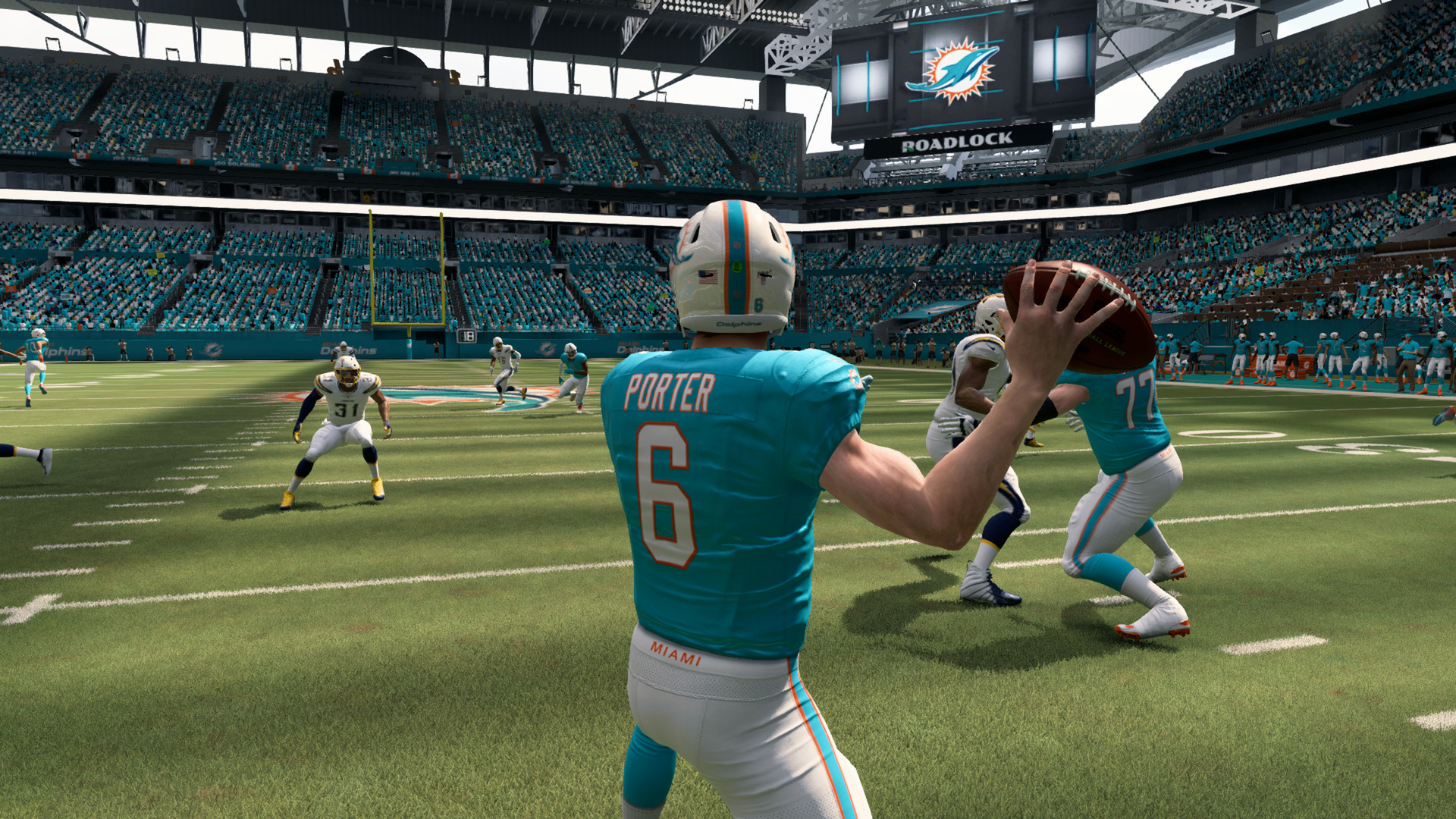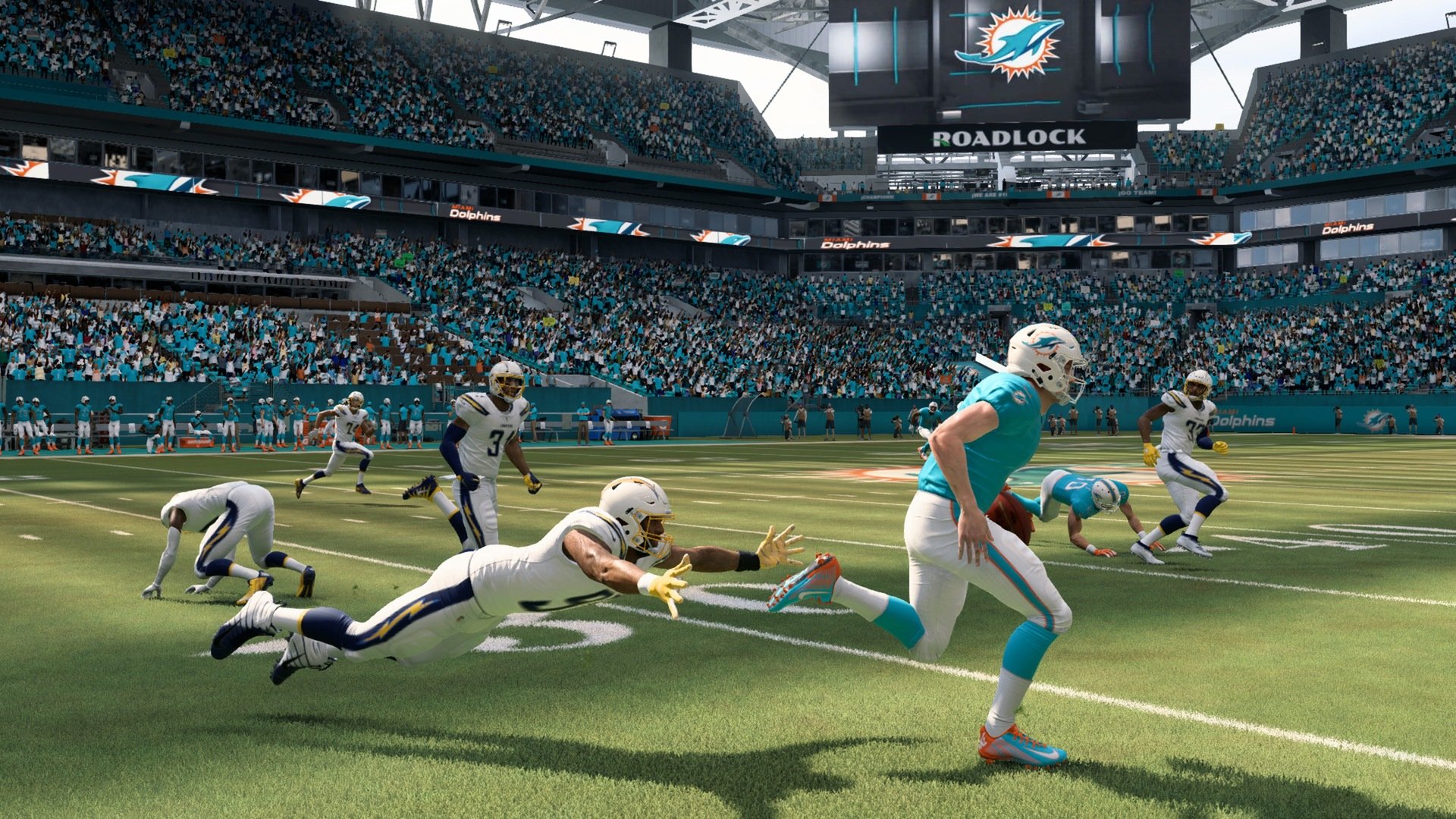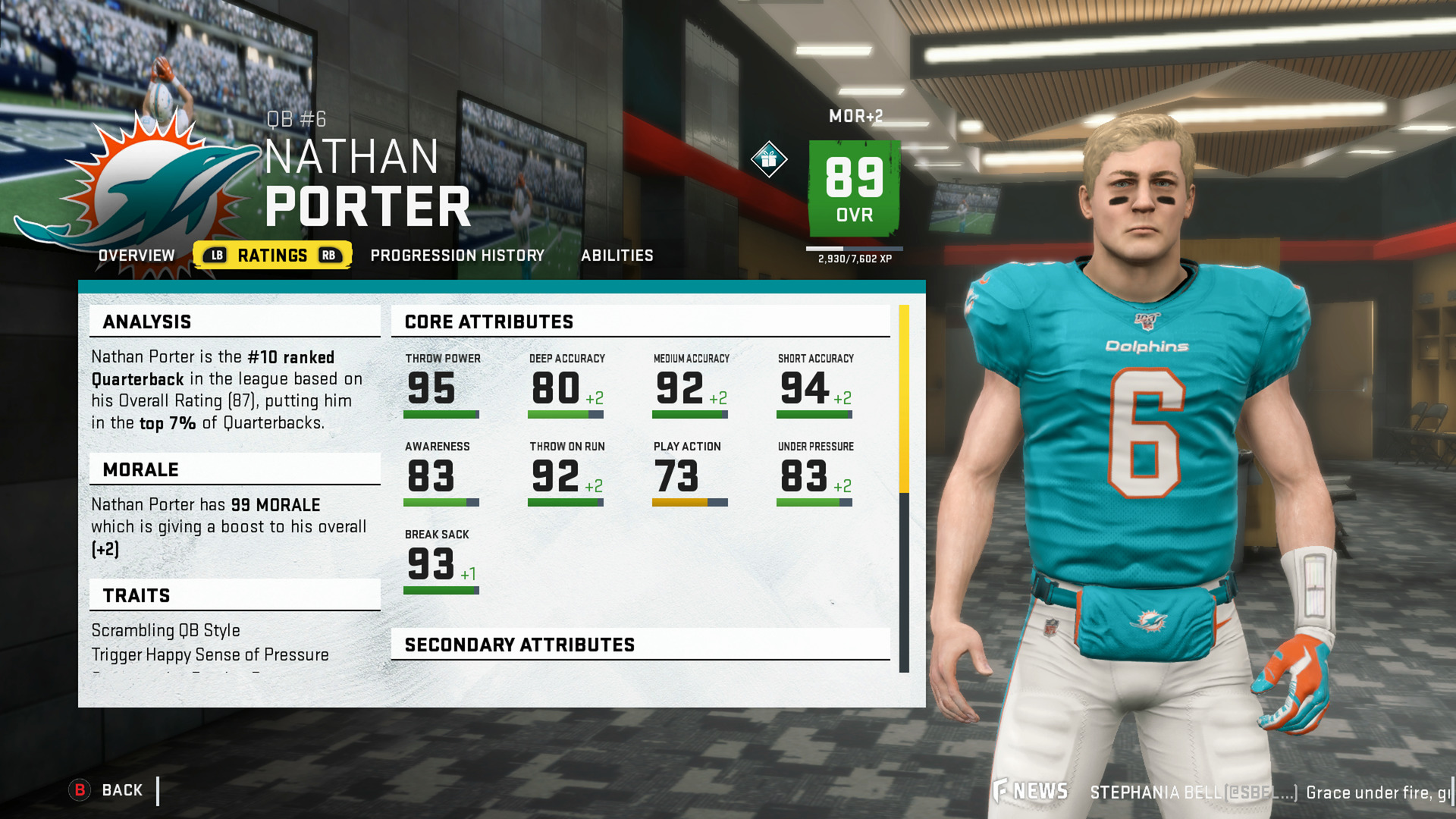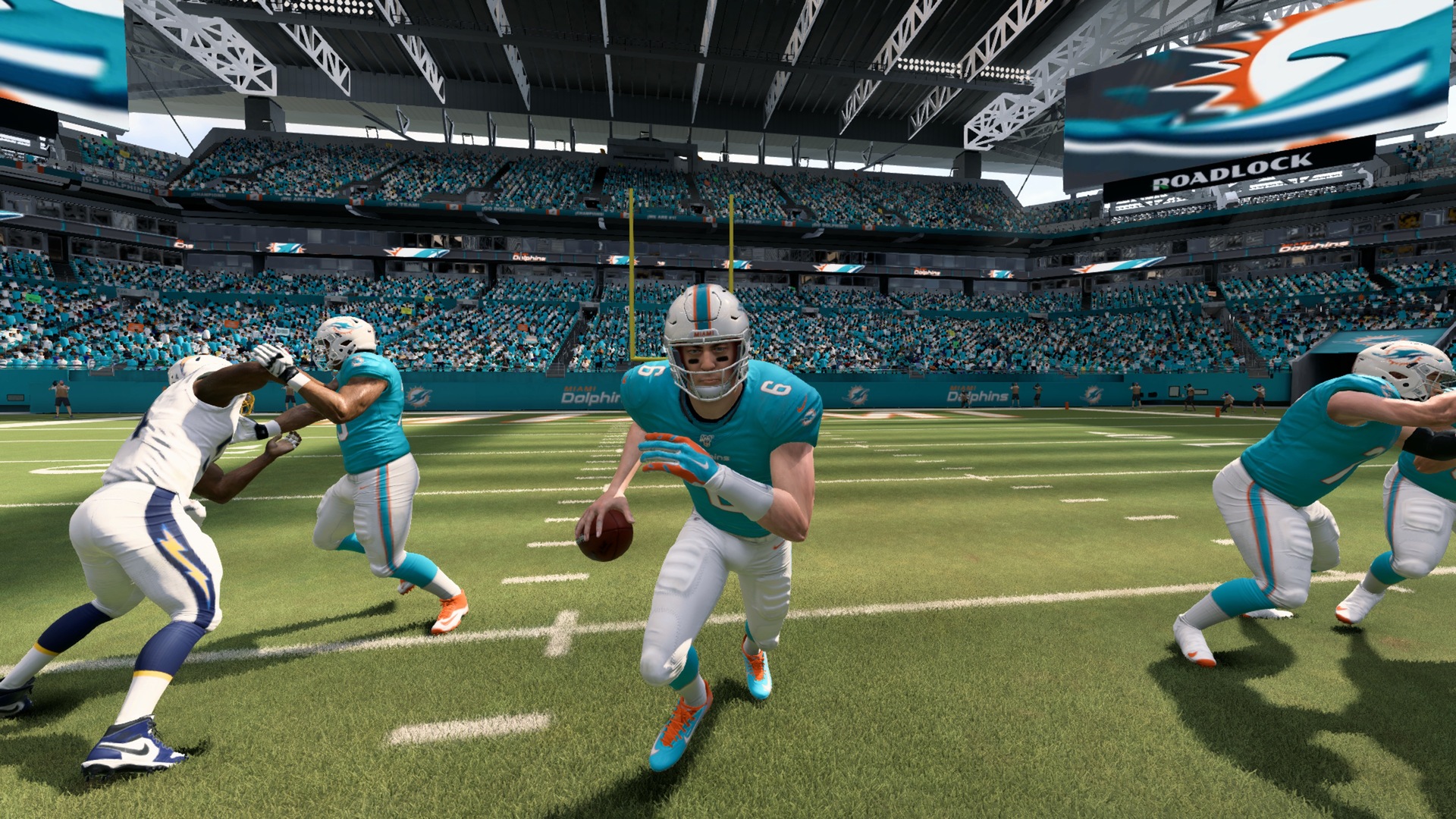When the NBA 2K team was already several years into building fully-fledged story modes for its annual basketball sim, I yearned for Madden to do the same.
I’ve loved football and story-driven games my entire life, and after years of building my own headcanon with every season of Madden‘s Franchise mode, I wanted something more scripted and dramatic than what the team was producing.
When I finally got my wish in Madden NFL 18, Longshot story mode was pretty bad. Even if it felt like a worthwhile first effort and something to build on, it was not good.
However, last year’s story was so heinously awful that I felt it was a complete waste of resources. I wrote elsewhere about how the team at EA Sports and Tiburon should either start fresh or just do away with the effort entirely, maybe put all that time and money into another facet of the game.
Ultimately, the development team started fresh and reimagined what a Madden story mode looks like. In the process, EA built the foundation for a brighter future.
If you haven’t yet played Madden NFL 20‘s story mode, understand that the days of Devin Wade, awful writing, and Rob Schneider as the Cowboys GM are in the past. Thankfully, they’re never coming back. In place of the abruptly canceled Longshot storyline comes Face of the Franchise, a much looser approach that ditches strict rails, but one that feels more appropriate for the series.
In FOTF, players are first given a specific position. This year, of course, is focused on the quarterback, but future installments promise other positions. After lacing up, players are then allowed to customize their appearance, name, and gear before working through their background, including their pre-NFL days.
Here, you’ll choose a college as a blue-chip recruit, get benched for four years when a better player transfers at the last minute, and get to shine late in your collegiate career as an exiting senior making your first start in the college playoff series.
It’s a fun backdrop that gives context to whatever is next for the series, and the infusion of some light player agency is a welcomed change.
Of course, not everything is roses.
The collegiate section feels a bit rushed, and I’d have liked more relationship building between the player character and the other QB who takes your starting job for four years; it’s so rushed you never even meet the player in question.
The mode’s growing pains mean the team writing this year’s story doesn’t quite hit its stride but compared to Longshot’s plot, the narrative playing out here is a Cormac McCarthy novel. I’d be surprised to hear it’s the same writers as before, but then again, it’s done in such a different way that I suppose it could be the same team operating within a framework that better suits them.
Regardless, no matter how the college football playoffs turn out, you go to the NFL Combine to prove your worth.
Gone are the days of ridiculous mini-games that felt better suited for traveling carnivals. Now, you’re given 24 passing plays, each with a different throw to make. It’s more realistic, and better suited for a football game in 2019.
And like your playoff run before it, how well you perform determines your draft status.
One way or another, though, you’ll land in the NFL.
Maybe you’re the first draftee off the board with a lot to prove. Maybe you’re a late-round flier with a chip on his shoulder. Doesn’t matter, really. However you get there, FOTF works for two reasons: it feels like it’s your story, complete with a background you’ve built and fought for, and, more importantly, it’s all a prologue.
FOTF tells its story and informs you of the stakes, then it promptly gets out of your way.
From there, the season plays out however it may, and you get one more cinematic moment at the end, once again with several branching paths and alternate endings based on how your rookie campaign goes.
This hands-off style is immensely refreshing considering last year’s mind-numbing narrative.
Where Longshot: Homecoming had a large cast of characters, some of whom were poorly stunt-casted, FOTF gives you your player, a prominent teammate, and a pair of coaches. Rather than breaking the game into inane mini-games and laborious cutscenes, Madden 20 whisks you through each moment, never overstaying its welcome.
There are, of course, still corny lines and a few head-scratching plot points, but this new look is the start of something much greater.
This reimagined Madden story mode is great even as it’s unoriginal. If you’ve read this far and play NBA 2K, you probably already agree the college-to-pro storyline is new to Madden but is the bread and butter of the award-winning NBA series.
While not every 2K story mode is well written or entertaining, it gets one thing right every year: existing only as a prologue. Its mode of storytelling is here and gone before it ever has time to fall apart.
With Face of the Franchise, borrowing heavily from the NBA 2K format is ultimately a wise decision, and EA shouldn’t be ashamed to have been so obviously inspired by the better series’ storytelling merits.
I spent this year partly dreading what kind of horrors of plot and character development Longshot would bring to us this Madden season, only to find the devs had burned it to the ground.
From its ashes rose a phoenix.
The fact that the complete name of the mode this year is “Face of the Franchise: QB1” indicates that EA has a multi-year plan for FOTF, and that’s the most exciting part of all.
Give us a foundation on which to build our own stories with new positions every year, playing every game of every season for as long as we want. Something that helps us decide who we were but not who we must be now, something where the actual football and not mini-games makes up the gameplay.
And for the love of football, something without Rob Schneider as the general manager of the Dallas Cowboys.










Published: Aug 9, 2019 01:08 am